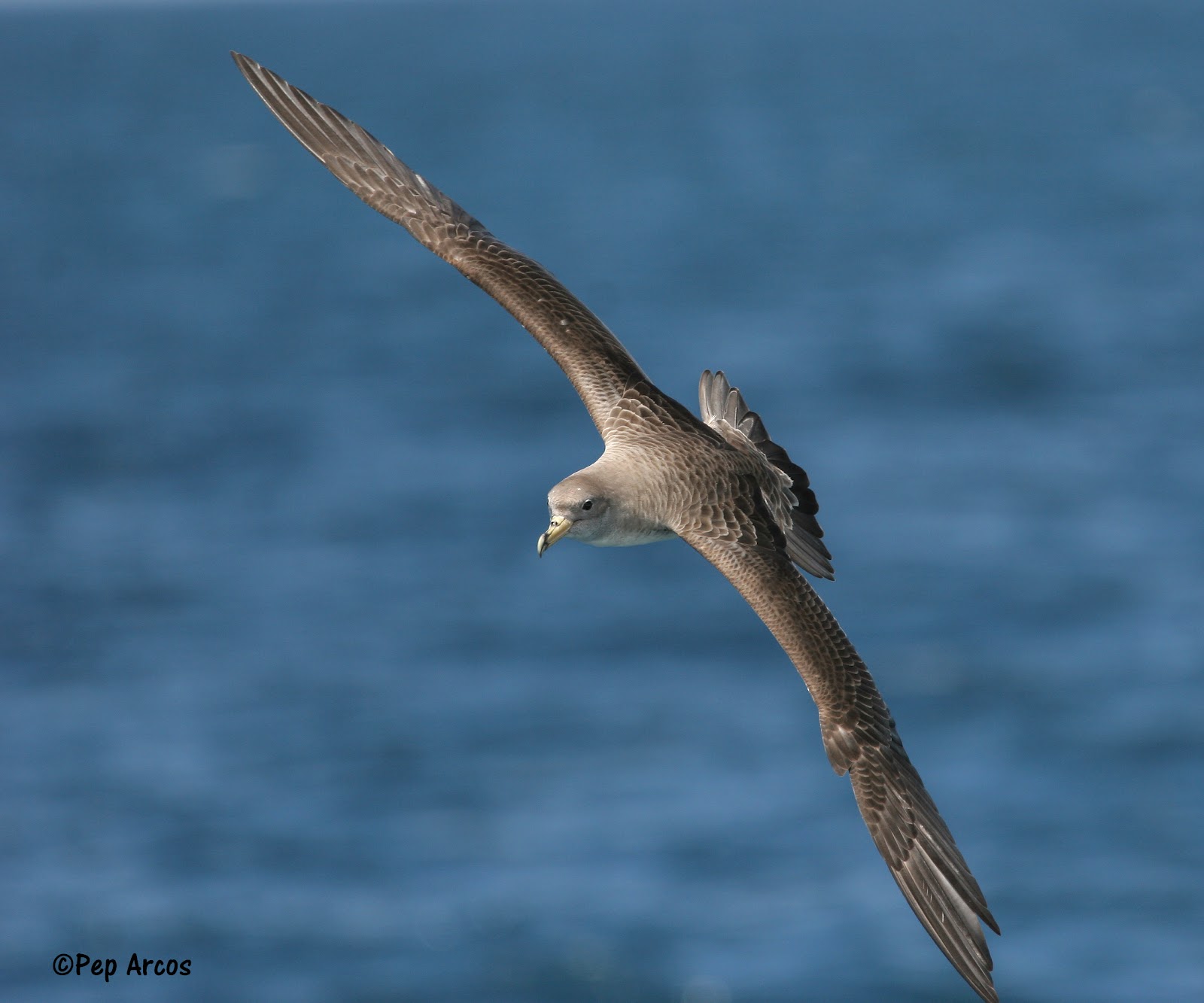James Grecian (Institute of Biodiversity, Animal Health and Comparative Medicine, University of Glasgow, UK) and colleagues have published in the open-access online journal Biology Letters on the presence of Cory’s Calonectris borealis and Scopoli’s C. diomedea Shearwaters and other seabirds within the Canary Current Large Marine Ecosystem.
The paper’s abstract follows:
“Upwelling regions are highly productive habitats targeted by wide-ranging marine predators and industrial fisheries. In this study, we track the migratory movements of eight seabird species from across the Atlantic; quantify overlap with the Canary Current Large Marine Ecosystem (CCLME) and determine the habitat characteristics that drive this association. Our results indicate the CCLME is a biodiversity hotspot for migratory seabirds; all tracked species and more than 70% of individuals used this upwelling region. Relative species richness peaked in areas where sea surface temperature averaged between 15 and 20°C, and correlated positively with chlorophyll a, revealing the optimum conditions driving bottom-up trophic effects for seabirds. Marine vertebrates are not confined by international boundaries, making conservation challenging. However, by linking diversity to ocean productivity, our research reveals the significance of the CCLME for seabird populations from across the Atlantic, making it a priority for conservation action.”

Scopoli's Shearwater, photograph by 'Pep' Arcos
With thanks to Richard Phillips.
Reference:
Grecian, W.J., Witt , M.J. Attrill, M.J., Bearhop, S., Becker, P.H., Egevang, C., Furness, R.W., Godley, B.J., González-Solís, J., Grémillet, D., Kopp, M., Lescroe, A., Matthiopoulos, J., Patrick, S.C., Peter, H.-U., Phillips, R.A., Stenhouse, I. & Votier, S.C. 2016. Seabird diversity hotspot linked to ocean productivity in the Canary Current Large Marine Ecosystem. Biology Letters 12: 20160024. http://dx.doi.org/10.1098/rsbl.2016.0024.
John Cooper, ACAP Information Officer, 18 August 2016

 English
English  Français
Français  Español
Español